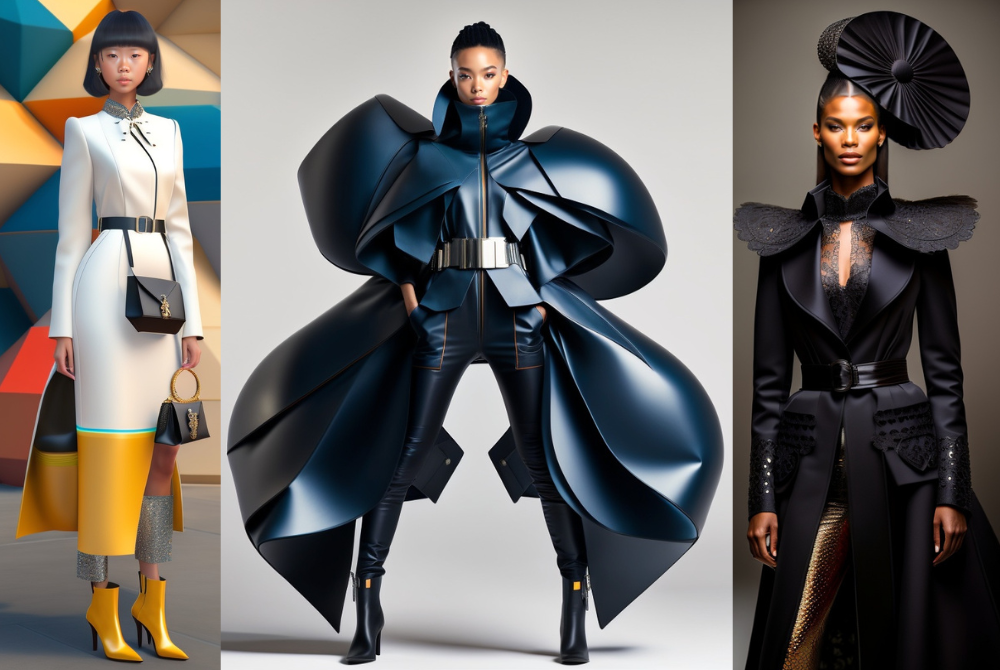Generative AI speaks ‘Fashion Runways’
ALSHAIMAA BAHGAT EZZAT ALANADOLY
Since April 2023, #AIFashion has been gaining significant traction highlighting the world’s first-ever ‘AI Fashion Week’ held in New York City, organised by the creative studio ‘Maison Meta’.
Fully designed by generative AI tools, the screens showcased designs like standard catwalk images in bustling halls and shooting environments.
‘AI Fashion Week’ was not a typical fashion week, instead, it provided an avenue for winning designers to bring their AI-generated designs to life and transformed them into capsule collections.
Generative AI, powered by machine learning, is an extraordinary technology capable of creating novel content across multiple mediums, including images, text, videos, and sound.
By training on vast datasets and processing massive amounts of information, generative AI learns patterns, styles, and nuances ingrained within the data. It then harnesses this knowledge to generate diverse and captivating content based on input received, opening up limitless possibilities for creative expression that pushes the boundaries of human imagination.
From a designer's standpoint, the initial stages of the design process involve searching, exploring, and brainstorming ideas.
This includes sketching, drafting, collaborating with colleagues, and conducting draping experiments, ultimately leading to sampling and prototyping. Often, these early design stages account for around 80% of the collection development process.
Collaborating with generative AI enhances the humanised creative process, fostering greater creativity and significantly shortening production timelines.
Designers contribute their unique blend of subjective judgment, artistic vision, human intuition, cultural understanding, and trend forecasting, while AI accelerates creative ideation to unprecedented levels within minutes.
While AI generates and combines ideas, designers meticulously consider essential design elements such as fabric choices, garment details, wearability, and market demand.
Fashion design encompasses not only aesthetically pleasing creations but also understanding consumers' needs and desires, creating cohesive collections while capturing the essence of a brand.
Although generative AI still struggles to conquer the humanised critique, AI still proves to be a valuable tool when wielded by skilled designers – fuelling inspiration and remixing existing concepts to generate a sense of innovation. Besides, business practitioners are expanding the definition of a "designer" to include mastery of generative AI tools.
Moreover, generative AI tools bring substantial value to the fashion industry in terms of sustainable and ethical practices, and accurate market predictions – capturing consumer trends and enabling better decision-making to meet actual market demands.
For example, renowned Levi Strauss & Co (Levi’s) addressed diversity concerns in fashion modelling by utilising AI models, facilitating more ethical and sustainable communication of their collections.
They joined other brands that made significant investments in AI, leveraging virtually created models to photograph their collections to foster e-retailing, virtual try-on, and highly immersive marketing campaigns.
The potential for generative AI tools to revolutionise the fashion industry worldwide is imminent.
As technology advances, the intersection of AI and fashion presents intriguing possibilities as fashion companies can streamline their collections, expedite processes at a reduced cost, and adopt more sustainable practices.
However, generative AI tools will always remain as tools as it is crucial to recognise stylists, planners, designers, and other fashion stakeholder’s skills and contributions that extend far beyond the output displayed on a screen.
Dr Alshaimaa Bahgat Ezzat Alanadoly is a Senior Lecturer of fashion design technologies at The Design School, Faculty of Innovation & Technology, Taylor’s University. She has dedicated her career of close to 15 years as an educator, a researcher with insightful publications, and a comprehensive trainer specialising in emerging technologies within the fashion industry.
The views expressed in this article are the author's own and do not necessarily reflect those of Sinar Daily.










